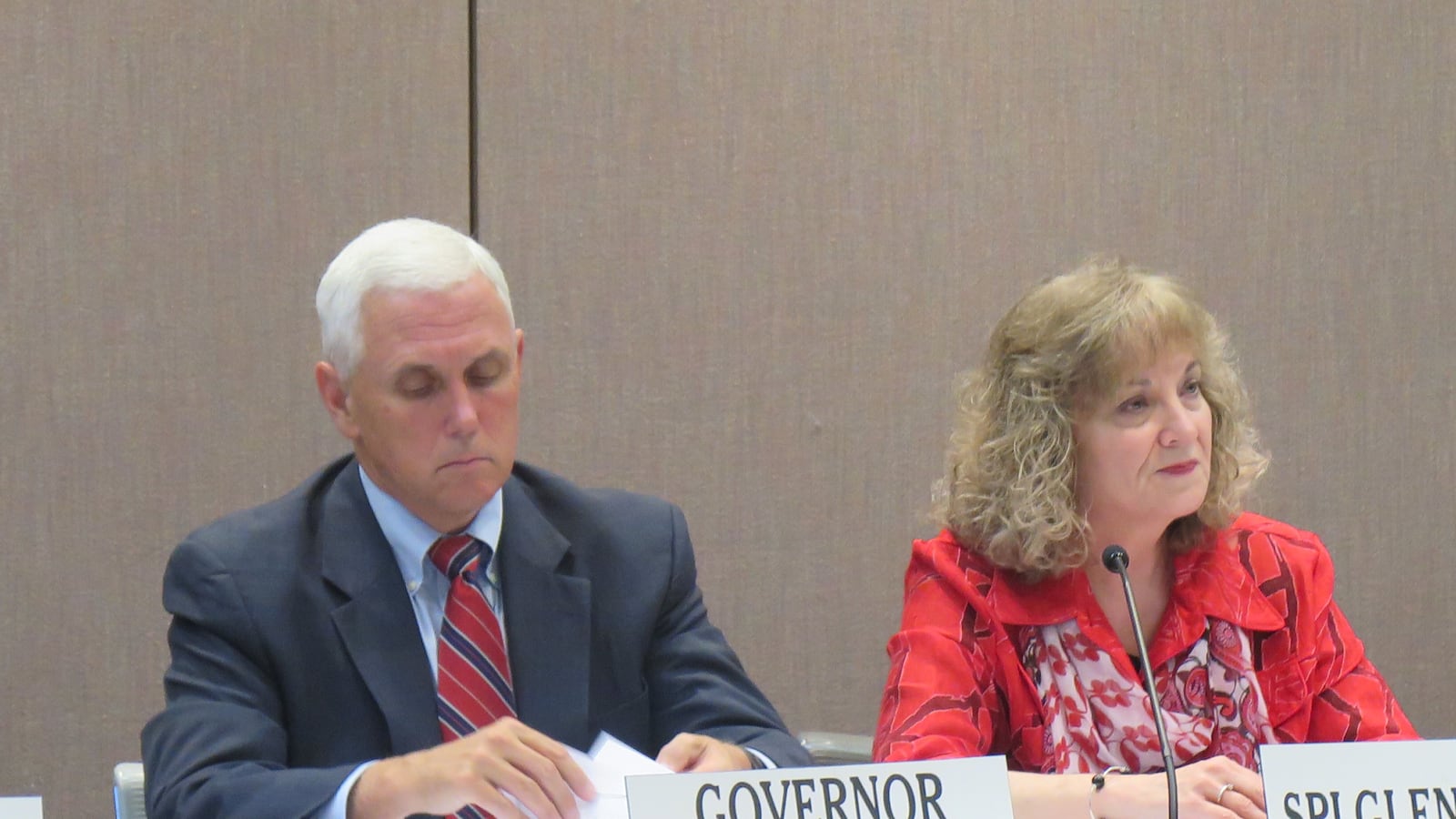As odd as it might sound, perhaps nobody in Indiana will miss Gov. Mike Pence more than John Gregg and Glenda Ritz.
Now that Donald Trump has announced on Twitter that Pence will be his vice presidential running mate, that means Pence will drop his re-election bid, and the state’s political class appears poised to descend into turmoil, forcing candidates like Gregg and Ritz to rethink their campaigns.
Gregg, the Democratic former Indiana House Speaker who Pence defeated by a slim 3 percentage points in 2012, has been aching for a rematch with a governor many view as significantly weakened by four years of political battles over conservative policies he pushed that irked more moderate Hoosiers.
With Pence off the local ballot, Gregg’s entire campaign storyline will need an instant rewrite.
And Ritz will lose one of her best arguments for re-election.

Ritz, a Democrat in a Republican-dominated state, scored one of the great upsets in Indiana political history in 2012 when she vanquished her underfunded, upstart campaign vanquished her heavily favored predecessor, Tony Bennett. With strong support from then-Gov. Mitch Daniels, Bennett had pushed hard for education reforms that measured success primarily with standardized testing. The pair also expanded school choice and stiffened the consequences for schools and teachers whose students performed poorly on state exams.
Ritz successfully argued to voters that the effort had gone too far and that she was needed as a check and balance. But Pence didn’t interpret her victory as a signal to change course. He continued to push an education agenda that built on the work of his fellow Republicans, Bennett and Daniels.
The clashes that followed between Ritz and her Indiana Department of Education team with Pence and his appointees on the Indiana State Board of Education were epic. In 2016, if there is one thing Hoosiers knew when they heard Pence and Ritz mentioned in the same breath it’s that they were at war over education.
For the Democrats, that tension was to be a central theme in both the governor’s race and the state superintendent’s race.
Ritz’s opponent this time, Yorktown Superintendent Jennifer McCormick, has outlined views that largely comport with Pence’s when it comes to education reform. But she is not well known in the state.
That’s why Ritz was expected to frame her run as more a campaign against Pence than against McCormick. She again likely needs to win over the moderate, suburban Republicans who voted for her against Bennett last time, and getting them to buy into the idea that she resisted the changes they were concerned about seems like a good strategy. But is that argument is less persuasive with Pence out of the picture?
The Republican front runners in line to take Pence’s spot on the Indiana ballot in the race for governor are Lt. Gov. Eric Holcomb, a long time political operative appointed by Pence in March, and U.S. Rep. Susan Brooks, a former federal prosecutor from Carmel serving in her second term in Congress.
Neither have long track records when it comes to the issues of K-12 education.
Will Ritz still be able to win over the voters she needs if she can’t argue that she is needed as a bulwark against more Pence-backed education reforms?
Starting next week, that will be the challenge facing her.

